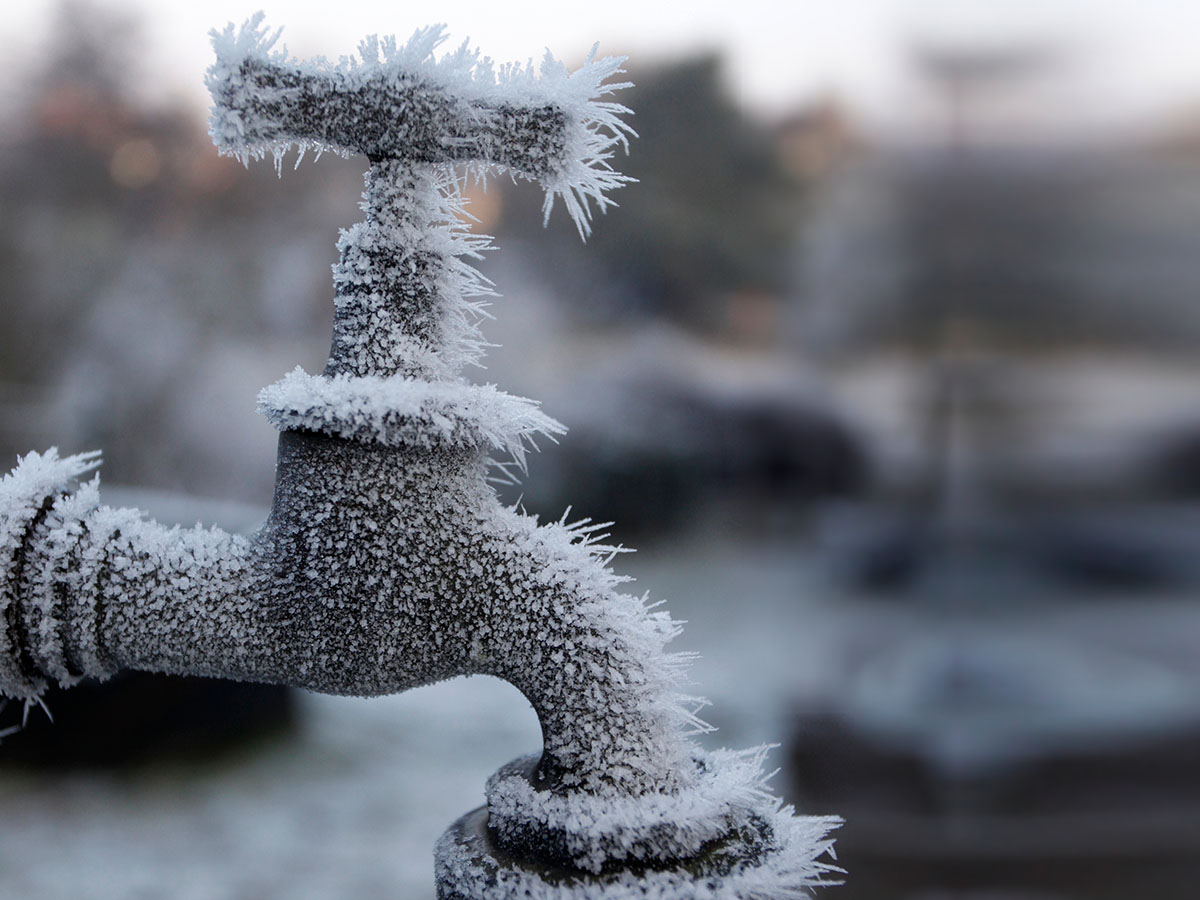Tips to Maintain Your Pipes from Freezing Damage: Important Tips
Tips to Maintain Your Pipes from Freezing Damage: Important Tips
Blog Article
The author is making several good pointers regarding How to prepare your home plumbing for winter weather overall in this post down below.

Winter can ruin your pipes, especially by freezing pipes. Here's just how to avoid it from happening and what to do if it does.
Introduction
As temperature levels drop, the danger of icy pipes boosts, possibly leading to expensive fixings and water damage. Comprehending just how to prevent frozen pipes is vital for home owners in cold climates.
Prevention Tips
Protecting prone pipelines
Cover pipelines in insulation sleeves or make use of warmth tape to protect them from freezing temperatures. Focus on pipelines in unheated or exterior locations of the home.
Home heating techniques
Maintain indoor areas appropriately warmed, especially locations with pipes. Open cabinet doors to permit warm air to circulate around pipelines under sinks.
How to determine icy pipelines
Search for reduced water circulation from faucets, unusual smells or sounds from pipelines, and visible frost on exposed pipes.
Long-Term Solutions
Architectural changes
Consider rerouting pipes away from exterior walls or unheated areas. Add additional insulation to attics, basements, and crawl spaces.
Upgrading insulation
Purchase top notch insulation for pipelines, attics, and walls. Proper insulation helps maintain regular temperature levels and lowers the danger of frozen pipes.
Protecting Exterior Pipes
Garden tubes and exterior faucets
Disconnect and drain yard hoses before winter months. Mount frost-proof spigots or cover outdoor faucets with protected caps.
Comprehending Icy Pipelines
What creates pipelines to ice up?
Pipelines ice up when revealed to temperature levels listed below 32 ° F (0 ° C) for expanded durations. As water inside the pipelines ices up, it broadens, taxing the pipe walls and potentially creating them to break.
Threats and damages
Icy pipelines can lead to supply of water disruptions, residential property damages, and costly repair services. Ruptured pipes can flood homes and create substantial structural damages.
Indicators of Frozen Pipeline
Identifying icy pipes early can stop them from rupturing.
What to Do If Your Pipelines Freeze
Immediate actions to take
If you suspect icy pipelines, keep taps available to relieve stress as the ice thaws. Utilize a hairdryer or towels taken in hot water to thaw pipes gradually.
Conclusion
Stopping frozen pipes calls for proactive steps and fast responses. By comprehending the reasons, indicators, and preventive measures, property owners can secure their pipes throughout cold weather.
6 Proven Ways to Prevent Frozen Pipes and Protect Your Home
Disconnect and Drain Garden Hoses
Before winter arrives, start by disconnecting your garden hoses and draining any remaining water. Close the shut-off valves that supply outdoor hose bibs and leave the outdoor faucet open to allow any residual water to drain. For extra protection, consider using faucet covers throughout the colder months. It’s also important to drain water from any sprinkler supply lines following the manufacturer’s directions.
Insulate Exposed Pipes
Insulating your pipes is an effective way to prevent freezing. Pipe insulation is readily available at home improvement stores and is relatively inexpensive. Pay close attention to pipes in unheated areas such as the attic, basement, crawl spaces, or garage. Apply foam insulation generously to create a buffer against the cold. You can also wrap your pipes in heat tape or thermostat-controlled heat cables for added warmth.
Seal Air Leaks
Inspect your home for any cracks or openings that could let in cold air. Seal any holes around the piping in interior or exterior walls, as well as the sill plates where your home rests on its foundation. Additionally, make sure to keep your garage door closed unless you’re entering or exiting. Leaving it open creates a significant air leak that can lead to frozen pipes.
Allow Warm Air Circulation
During cold snaps, it’s essential to allow warm air to circulate evenly throughout your home. Leave interior doors ajar to promote better airflow. Open kitchen and bathroom cabinets to help distribute heat consistently around the rooms. If you have small children or pets, be sure to remove any household chemicals or potentially harmful cleaners from open cabinets for safety.
Let Faucets Drip
A small trickle of water can make a big difference in preventing ice formation inside your pipes. When temperatures drop significantly, start a drip of water from all faucets served by exposed pipes. This continuous flow helps prevent the water from freezing. Additionally, running a few faucets slightly can relieve pressure inside the pipes, reducing the chances of a rupture if the water inside does freeze.
https://choateshvac.com/6-proven-ways-to-prevent-frozen-pipes-and-protect-your-home/

I was guided to that write-up on How to prepare your home plumbing for winter weather from a buddy on our other web property. Remember to take the time to share this write-up if you appreciated it. Thank you so much for your time invested reading it.
Free Quote Report this page